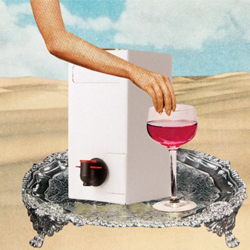Baglione, Melody
Melody Baglione Professor and George Clark Chair of Mechanical Engineering The Cooper Union for the Advancement of Science and Art Melody Baglione is Professor and George Clark Chair of Mechanical Engineering at The Cooper Union for the Advancement of Science and Art in New York City. Dr. Baglione teaches courses in the areas of process […]
Jackson, Cori
Cori Jackson Program Director California Lighting Technology Center Cori Jackson is responsible for effectively planning, budgeting, scheduling, and monitoring CLTC research projects. For several years, Cori managed CLTC’s demonstrations program, facilitating the installation of leading-edge lighting technologies in more than 100 sites throughout California and in other areas of the U.S. Cori graduated from the […]
Morejohn, Joshua
Joshua Morejohn Energy Manager UC Davis Facilities Management Joshua works to develop an innovative energy management strategy and supports his team in implementing a wide variety of energy projects across the campus. He is a licensed professional engineer and a certified energy manager and received a B.S. in Mechanical Engineering at UC Davis, as well as […]
Carter, Deirdre
Deirdre Carter Energy and Sustainability Manager Berkeley Lab Deirdre Carter, PE is the Energy and Sustainability Manager and is part of the Sustainable Berkeley Lab team working to minimize the Lab’s greenhouse gas emissions and environmental impact. She is broadly responsible for understanding, analyzing, and reducing Berkeley Lab’s electricity, natural gas, and water consumption by […]
Elliott, John
John Elliott Chief Sustainability Officer Berkeley Lab John Elliott is Chief Sustainability Officer, responsible for directing and implementing the Lab’s sustainability strategy. He has broad and detailed experience in building efficiency, building energy management, renewables, water efficiency, electric vehicles, employee engagement, waste diversion, and toxics reduction. He was previously Director, Energy and Sustainability at UC […]
Seya, Jean-Philippe
Jean-Philippe Seya Regional Engineering Manager Western & Central Africa Aggreko International Jean-Philippe has 7 years international experience in energy sector, developing challenging Power projects in more than 20 African countries. He has successfully managed multi-million dollars Power Projects (thermal, solar, battery storage) where he was in charge of feasibility studies and detailed engineering design. He […]
Mendonsa, Dan
Dan Mendonsa Energy Manager UC Davis Health Dan manages utilities for over 4-million sq. ft. of hospital and support facilities while pursuing aggressive energy, GHG and water reduction goals. Projects include retro-commissioning, implementing continuous commissioning software, retrofitting lights with LEDs and advanced lighting controls and investigating large-scale renewable energy projects and water efficiency projects.
Rolf Schreiber
Rolf Schreiber Energy Strategy Program Manager Real Estate & Workplace Services, Google Rolf is an Energy Strategy Program Manager at Google and oversees various energy programs for Google’s corporate operations in the Bay Area – including renewable energy projects, onsite energy storage systems and demand response initiatives. His past projects include the launch of the […]
Know the Facts About Alcohol and Climate Change

Know the Facts about Alcohol and Climate Change Outlet Full Name: New York Times (NYT) News Date: 02/19/2020 “The more concentrated they are, the less impact they have,” Alissa Kendall, a professor of civil and environmental engineering at the University…
The Supercool Materials That Send Heat to Space

The Supercool Materials That Send Heat to Space Outlet Full Name: Scientific American News Date: 02/17/2020 Paints, plastics and even wood can be engineered to stay cool in direct sunlight—but their role in displacing power-hungry air conditioners remains unclear.
